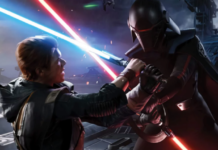Resident Evil 7 has been a very divisive game among series veterans. Some feel it strays too far away from what makes it Resident Evil while some think it's exactly where the series needs to go in order to innovate and remain relevant. Fans are also pretty confused on where this game fits in the Resident Evil timeline as it appears to be all new characters and a new setting. Why is it a numbered entry in the series and not a reboot or spin-off? We finally have some answers.
Speaking with GameInformer, producer Masachika Kawata detailed exactly why Capcom took this shift in tone and gameplay and how it fits into the Resident Evil series.
Considering how much of a departure the game is both aesthetically and narratively (from what we've seen), why name it Resident Evil 7 instead of calling it a reboot? Do you consider this game to be a reboot for the franchise from a gameplay perspective?
If you look at just the gameplay that's been shown so far, you may think of it as a reboot at first, but the story and narrative have shaped up to fit the series as a numbered title. It is still a Resident Evil title, which draws on the series' roots of horror, exploration, puzzles, and combat while offering something new. Rather than playing it safe and sticking with what we're used to, we strived to create something new that would impact players in a different way with a more immersive, personal experience. We wanted to create a game that really pushes survival horror to the forefront and focus on what makes a game scary, while still being a fun and entertaining experience from a gameplay perspective.
The series has been going in a more action-oriented direction, why did you feel now was the time to shift back to horror?
We had three consecutive Resident Evil titles filled with action, and we figured this would be a good time to switch gears and challenge ourselves to do something new. The past few titles have increased to a grander scale, and as we approached the 20th anniversary and evaluated the series' legacy and roots, we were inspired to create something more personal this time around. What better way to celebrate the franchise than to return to its roots in survival horror and take it in a new direction with an immersive, terrifying experience.
Will any elements be returning from previous games (enemies, puzzles, characters)?
Based on just the atmosphere and graphics alone, it might be difficult to recognize it as a Resident Evil title upon first glance, but rest assured that RE 7 contains many of the hallmarks that fans love including exploration, item management, and puzzles. We've made a lot of effort to really strengthen the core of survival horror to the fullest, so you'll get the sense that this truly is a Resident Evil title when you get your hands on it. This game also embodies one of the central themes of Resident Evil which is the balance of tension from fearful situations with the relief from being able to overcome them.
Why the transition to a first-person view?
When we decided on the direction of focusing on horror, we thought that having a first-person perspective would be the most effective way to fully immerse the player in the experience. By making the player the main character, we believe they'll be able to have a more personal connection to what's going on and experience survival horror like never before.
Any misconceptions about the game that you'd like to clear up?
At first glance, it may not seem like it, but this title will offer plenty of familiar aspects of Resident Evil, from fighting against different creatures to tense, atmospheric exploration and solving various puzzles. As mentioned previously, there are even some subtle nods throughout the game that we hope fans will enjoy discovering as they play.
Masachika Kawata also discussed the VR mode for the game, inspirations, and more. You can check out the full interview at GameInformer!
Resident Evil 7 releases January 24th, 2017 on Xbox One, PS4, and PC.







